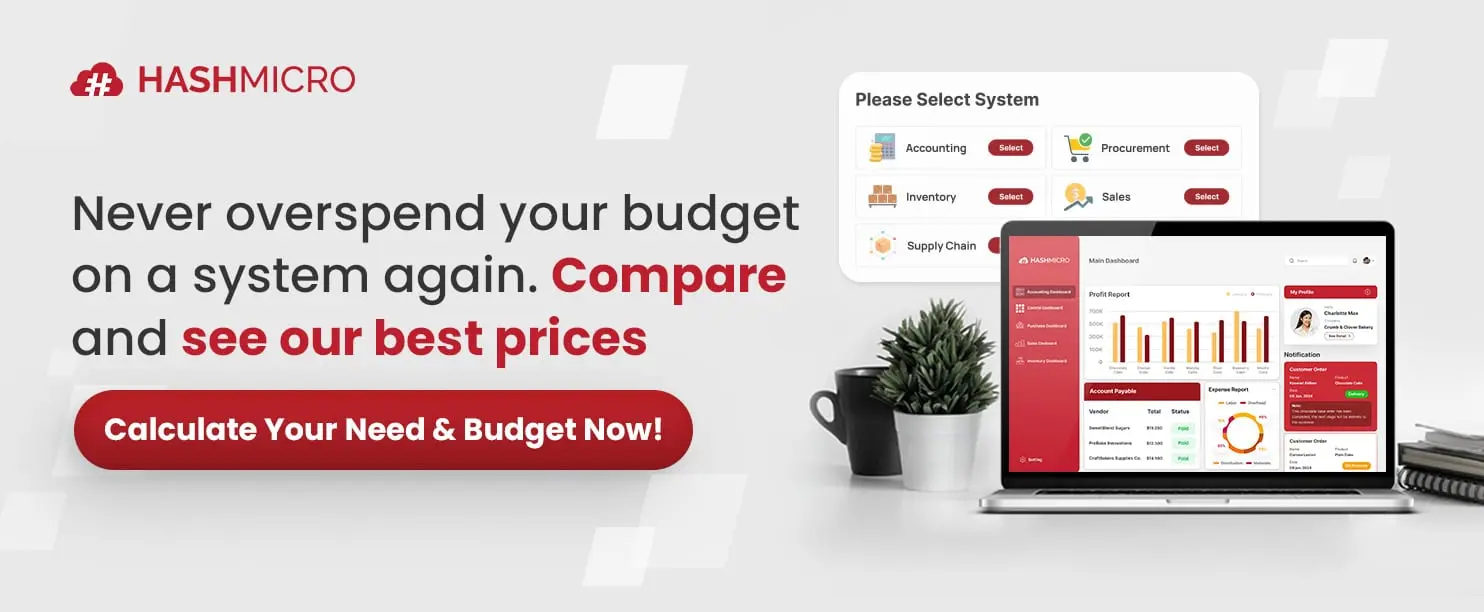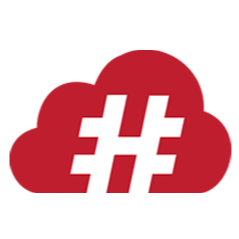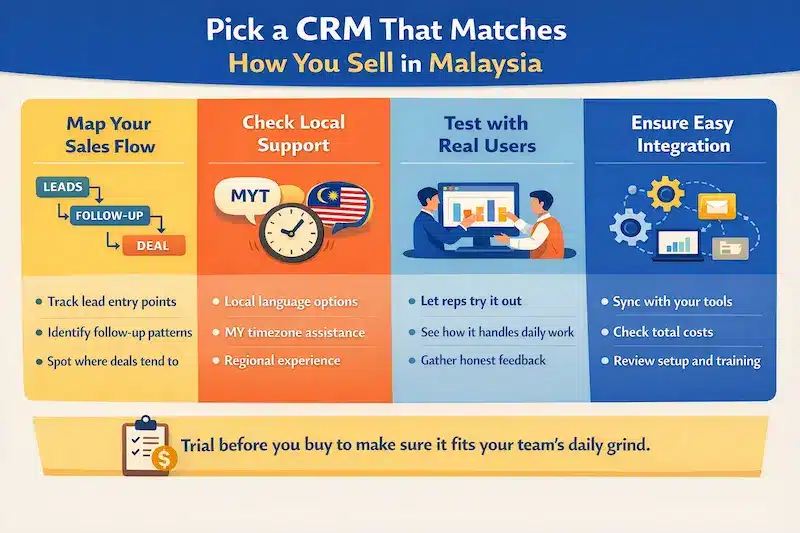Customer data often looks neat, but becomes messy when used on a daily basis. The 2024 DATAVERSITY survey found that 68% of organizations are most concerned about data silos. Many salespeople still store information on WhatsApp/Excel. HubSpot says 40% still do so. As a result, pipeline updates are late, follow-ups are missed, and leads go cold. Yet 35–50% of deals are usually won by vendors who respond the fastest.
Slow responses are costly. Salesforce State of Sales 2024 shows that sales only spend 30% of their time selling. The remaining 70% is spent on admin, data input, and chasing updates. Each deal involves an average of 10 different tools. The more tools, the greater the risk of information being scattered and decisions being delayed.
CRM consolidates customer history, deal progress, and next actions into one system. Salesforce notes that CRM can boost revenue by up to 29% and productivity by 34%. Nucleus Research also found that the sales cycle can be 8–14% faster. Gartner states that 91% of companies with 11+ employees already use CRM. So the focus is: choose the CRM that best fits how your team sells in Malaysia.
Key Takeaways
|

The Malaysia shortlisting rule that saves you time
Start with your workflow, not brand popularity. A CRM that works for a high volume pipeline can feel wrong for a long cycle B2B team. A tool that looks perfect for one branch can create chaos when you run multi branch operations.
Best because
The best end-to-end solution for all types of business needs
Best Because
Strong sales and customer service tools
Best Because
Wide range of automation features
Best Because
Intuitive pipeline management
Best Because
Robust data security and scalability
Best Because
Seamless connection with Microsoft apps
Best Because
Built-in phone and email integration
Before you shortlist anything, map three things. Where leads come from, what follow up looks like in your team, and where deals usually stall. Once you see your real process, the right CRM software becomes easier to spot.
What CRM software actually fixes in day to day sales work
A CRM is not just a contact list. It is where your team records customer information and ties it to action. Calls, emails, meeting notes, tasks, and follow ups stay connected, so the next rep can continue without guessing.
In practice, CRM software helps you solve ownership issues, missed follow ups, and unclear pipeline status. It also gives managers a clearer view of what is happening, because the data is updated through daily activity, not through weekly reminders.
Hashy AI Fact

Need to know!
Strengthen your customer relationships with Hashy AI by tracking interactions, identifying sales opportunities, and guiding your team with smart follow-up suggestions.
Request a free demo today!
22 Best CRM Software in Malaysia for Businesses
After reviewing different platforms, the safest way to shortlist is to start with workflow fit. Some CRMs are built for fast pipelines and high activity volume. Others are better for longer cycles, multi branch teams, or stricter reporting needs. The shortlist below reflects those differences, so you can compare options based on fit.
1. HashMicro Best CRM Software
HashMicro CRM suits teams that want customer management and sales tracking in one place, with room to adapt the workflow to how you sell. The focus is keeping pipeline activity, customer data, and reporting consistent, so managers are not chasing updates across chats and spreadsheets.
- Sales forecast and actualization
- Customer segment analysis using RFM
- Sales mobile apps for Android and iOS
- Upselling recommendation
- Custom printout in quotation
- Commission tracking management
| Pros | Cons |
|
|
Best for: Teams in Malaysia that want CRM close to broader operations and reporting, with local support and room to scale.
Considering HashMicro’s CRM Software for your business? Click on the pricing calculator below to get a personalized quote and understand the potential investment.

2. Sage CRM System
Sage CRM supports lead handling, customer service workflows, and visibility across teams, especially when you want a clearer structure for customer interactions.
Best features:
- Lead capturing and routing
- Web self service
- Product catalogues and quotations
- Internal team collaboration
- Customer survey creation
| Pros | Cons |
|
|
Best for: Teams already using Sage accounting or ERP and wanting CRM connected to back office processes.
Pricing: Pricing varies by plan and user count, so you will need to confirm the latest details directly with the vendor.
3. Salesforce Cloud CRM Software
Salesforce is a broad platform that supports lead management, contact tracking, and custom workflows, and it is widely used by organisations with complex needs.
Best features:
- Extensive customisation
- Lead management and scoring
- Advanced reporting
| Pros | Cons |
|
|
Best for: Large or fast scaling organisations that want enterprise grade CRM with deep customisation.
Pricing: Shared through partners or local sales channels.
4. Microsoft Dynamics 365 CRM System
Microsoft Dynamics 365 combines sales, marketing, and service functions with strong integration across Microsoft tools, which helps if your team already relies on that ecosystem.
Best features:
- AI powered insights
- Sales Navigator integration
- Unified customer data
| Pros | Cons |
|
|
Best for: Teams invested in Microsoft 365 who want CRM aligned to their existing tools.
Pricing: Pricing depends on the module you choose. Sales, Customer Service, and Field Service typically range from $50 to $162 per user per month, while Marketing usually starts around $1,500 per tenant per month.
5. SAP CRM Software Malaysia
SAP CRM is designed for complex enterprise environments that need strong governance and integration with SAP systems.
Best features:
- Sales management
- Marketing management
- Service management
| Pros | Cons |
|
|
Best for:Large enterprises running SAP ecosystems with complex processes
Pricing: For detailed pricing and licensing information, please get in touch with SAP.
6. HubSpot CRM Software Malaysia
HubSpot is known for ease of use and strong onboarding, and it can suit teams that want a simple start and flexible growth options.
Best features:
- Free core CRM
- Email integration
| Pros | Cons |
|
|
Best for: Growing SMEs that need flexible, budget-friendly CRM capabilities with AI assistance and a wide range of add-on apps.
Pricing: HubSpot CRM is available at no cost, while its Marketing Hub, Sales Hub, and Service Hub are offered in four tiers: Free, Starter (starting at $50/month), Professional ($400–$890), and Enterprise ($1,200–$3,200). For added value, the Growth Suite combines all these tools into a single package at a discounted rate.
7. Zoho CRM System Malaysia
Zoho CRM combines sales, marketing, and customer tools, and it often works for teams looking for broad capability at budget friendly pricing.
Best features:
- Sales automation
- Analytics and reporting
- Omnichannel communications
- Collaboration tools
| Pros | Cons |
|
|
Best for: Sales-driven teams that want a simple, visual pipeline CRM to improve deal tracking and closing rates.
Pricing: Zoho offers transparent pricing with monthly or annual plans, along with four service bundles to choose from. Each bundle includes a complimentary trial. The Standard plan builds on the free version by adding more advanced features.
8. Pipedrive CRM Software
Pipedrive is popular for simple pipelines and quick adoption, especially for sales teams that want visual deal tracking.
Best features:
- Workflow automation
- Call integration
- Customisable pipelines
| Pros | Cons |
|
|
Best for: Organizations invested in the Microsoft ecosystem that need CRM tightly integrated with Microsoft 365, Azure, and ERP modules.
Pricing: Pipedrive’s plans range from around $14 to $99 per user per month, offering options from basic pipeline tools to full-featured CRM for large teams.
9. Second CRM Software Malaysia
Second CRM supports Malaysian SMEs with a focus on practical setup, sales automation, and local support.
Best features:
- Sales force automation
- Customer support and service tools
- Marketing automation
| Pros | Cons |
|
|
Best for: Malaysian SMEs seeking a no-fuss, locally supported CRM to manage leads, deals, and customer activities quickly.
Pricing: Second CRM Foundation starts at US$ $4.25 per user/month (first five users free lifetime); Sales and Service add-ons cost US$ 25.50 per user/month.
10. Bitrix24 CRM Malaysia

Best features:
- Project management
- Lead generation
- File management
- Advanced email tools
| Pros | Cons |
|
|
Best for: Teams that want an all-in-one platform combining CRM with collaboration, telephony, and basic project management.
Pricing: For detailed pricing and licensing information, please contact Bitrix24.
11. Zendesk Sell CRM Software Malaysia

Best features:
- Lead management
- Dashboard view
- Zendesk Support integration
| Pros | Cons |
|
|
Best for: Teams already using Zendesk who want sales data aligned with support workflows.
Pricing: Zendesk Sell starts at $19 per user per month for the Team plan, with the Growth plan at $55, the Professional plan at $115, and the Enterprise plan at $169 (all billed annually).
12. Freshsales CRM System

Freshsales supports contact management, workflow automation, and reporting, with tools designed to help teams move faster in daily sales work.
Best features:
- AI powered tools
- Chat campaigns
- Sales sequences
| Pros | Cons |
|
|
Best for: Sales teams that prioritize multichannel outreach and AI-driven lead scoring to speed up deal closures.
Pricing: Starts from $0 and the highest pricing are $83 per user/month for the enterprise version. Visit Freshworks pricing for more information.
13. Oracle CRM Software Malaysia
Oracle CRM supports enterprise organisations with strong security, compliance, and complex workflows.
Best features:
- Email marketing
- Sales force automation
- Upsell and order management
| Pros | Cons |
|
|
Best for: Large enterprises that need robust governance and enterprise workflows.
Pricing: Though NetSuite CRM doesn’t publicly list its prices, sources like Capterra list its price at $129 per month per user.
14. Monday.com CRM Malaysia

Best features:
- Customisable pipelines
- Automation and integration
- Real time dashboards
| Pros | Cons |
|
|
Best for: Teams that want flexible CRM inside a work management system.
Pricing: Monday.com CRM starts its pricing list with the Pro Plan at $28 per month per user.
15. Lark CRM Software

Best features:
- Lead capture
- Workflow automation
- Unified communications
| Pros | Cons |
|
|
Best for: Malaysian businesses wanting a flexible CRM embedded in a powerful collaboration suite to boost teamwork and sales productivity simultaneously.
Pricing: According to TrustRadius, Lark CRM starts its pricing list with the Pro Plan at $12 per month per user.
16. Ontraport CRM Malaysia
Ontraport combines CRM and marketing automation, and it can work for teams that want a broader automation stack.
Best features:
- Unified contact history
- Smart pipelines
- Multi channel automation
| Pros | Cons |
|
|
Best for: Online businesses, coaches, and service providers that need strong marketing automation bundled with CRM and payments.
Pricing: Ontraport CRM starts its pricing list with the Enterprise Plan at $249 per month.
17. Nimble CRM Software

Best features:
- Unified contact management
- Deal tracking
- Productivity integrations
| Pros | Cons |
|
|
Best for: Small teams that rely heavily on social media and email and want a lightweight, relationship-focused CRM.
Pricing: Nimble CRM starts its pricing list with the Enterprise Plan at $29.9 per user per month.
18. Membrain CRM Malaysia

Best features:
- Process enforcement
- Sales playbooks
- Custom fields and workflows
| Pros | Cons |
|
|
Best for: B2B companies with complex, consultative sales cycles that need structured sales processes and deep pipeline coaching.
Pricing: According to SoftwareAdvice, Membraid offers a paid version that starts at US $65/month.
19. Salesmate CRM Software Malaysia
Salesmate supports deal tracking, automation, and communication, and it is designed for small to midsize sales teams.
Best features:
- Pipeline management
- Lead and contact management
- Automation workflows
| Pros | Cons |
|
|
Best for: Small and midsize sales teams looking for built-in calling, SMS, and simple pipelines in one streamlined CRM.
Pricing: Salesmate CRM starts its pricing list with the Enterprise Plan at $63 per user per month.
20. Nutshell CRM Software Malaysia

Best features:
- Lead management
- Email automation
- Integrations with common tools
| Pros | Cons |
|
|
Best for: B2B SMEs that want an easy CRM with built-in email marketing and clear reporting without excessive complexity.
Pricing: Nutshell CRM starts its pricing list with the Business Tier at $67 per user per month.
21. Keap CRM Software Malaysia

Best features:
- Lead tracking
- Marketing automation
- Payments and invoicing integration
| Pros | Cons |
|
|
Best for: Solopreneurs and small businesses that need an all-in-one tool combining CRM, email marketing, and basic automation.
Pricing: According to Business News Daily, Keap CRM’s Max plan starts at US$199/month (3 users, 2,500 contacts).
22. ClickUp CRM Project Management Software Malaysia
ClickUp works well if you want one workspace for projects, tasks, and customer tracking. You can customise fields, deal stages, and workflows to match how your team handles leads and activities, so you stay in control without switching between tools.
Best features:
- Customisable pipelines
- Custom fields for customer data
- Automations
- Real time collaboration
| Pros | Cons |
|
|
Best for: Growing teams that want to manage projects, tasks, and sales pipelines in one customizable work management and CRM platform.
Pricing: Free forever plan available; Unlimited at $7/user/month, Business at $12/user/month, and Enterprise with custom pricing (all billed annually).
One general study case that matches most Malaysia teams
You run a growing sales team with leads coming from WhatsApp, email, and web forms. Everyone is active, but results feel inconsistent. Some leads get fast replies while others sit for days. Deals move forward, then stall, because nobody is sure what the next step is or who owns it.
After you move customer history and next actions into one CRM, the biggest change is clarity. Every lead has an owner, a stage, and a due follow up. Managers can see stalled deals early, reps stop losing context across chats, and handovers stop breaking relationships. Over time, your pipeline becomes more predictable because follow ups stop depending on memory.
What you should expect when CRM software in Malaysia is working properly
You should see fewer missed follow ups because tasks and reminders make next actions visible. Your pipeline should feel cleaner because stages reflect real progress, not guesswork. Forecasting should improve because the team updates deals in the system while work is happening, not after the fact.
Most importantly, your sales execution becomes more consistent across reps and branches, even when activity volume increases.

Overall Comparison of CRM Software in Malaysia
Provider
Connection Quality
Bank Coverage
Ease of Integration
Data Enrichment
HashMicro
Sage
Salesforce
SAP
HubSpot
Zoho
Pipedrive
Microsoft Dynamics
Pick a CRM That Matches How You Sell in Malaysia
Choosing the right CRM is less about finding the best system and more about finding the one your team will actually use every day. Start with your sales process. Map where leads come from, how follow ups happen, and where deals usually stall. A good system should support that flow, not force you to rebuild your habits from scratch.
Then check local fit. You want support that works in your timezone, and a setup that makes sense for your team’s language and reporting needs. After that, test with real users. A CRM can look smooth in a demo and still feel frustrating in daily work, so get two or three reps to run real prospects through it before you commit.
Next, look at how it connects with what you already use. Email, accounting, marketing tools, and your existing workflow should not live in separate islands. Finally, evaluate total cost properly. Subscription price is only one part. Setup effort, training time, customization, and per user charges can change the real cost fast. If a vendor offers a trial, use it to test your actual workflow, not just click around for five minutes.
Why CRM Becomes a Growth Tool for Malaysian Teams
A CRM matters because it protects consistency as your sales activity grows. It keeps customer history in one place, so handovers do not break relationships. It also makes follow ups cleaner, because reminders and tasks reduce missed replies and stop leads from quietly going cold.
You also get more predictable execution. Managers can see stalled deals earlier and coach based on what is actually happening, not based on guesswork. Over time, forecasting improves because your pipeline reflects real progress. When sales, marketing, and support work from the same customer record, collaboration gets easier and response time improves without extra meetings.
Conclusion
The right CRM doesn’t just store contacts. It gives your team a shared view of every customer relationship, removes the guesswork from follow-ups, and surfaces the data you need to make better decisions.
But no CRM works if your team doesn’t use it. The best system is one that fits your actual sales process, not one that forces you to rebuild how you work. Before committing to any vendor, get clear answers on three things: total cost over three years, how the system handles your specific workflow exceptions, and how fast support responds when something breaks.
If you’re still comparing options and want to see how a CRM handles your sales process, a free consultation with our team can help clarify which setup makes sense for your business.
FAQ About CRM Software
-
Which industries benefit the most from using the best CRM software in Malaysia?
Industries such as retail, real estate, manufacturing, finance, and professional services benefit the most from CRM software in Malaysia. These sectors rely heavily on managing large volumes of customer interactions, tracking sales pipelines, and providing personalized service.
-
What key features should businesses look for when choosing CRM software in Malaysia?
When selecting a CRM software, businesses should consider features such as lead and contact management, sales pipeline tracking, marketing automation, reporting and analytics, and mobile accessibility. Integration capabilities with email, social media, and accounting systems are also crucial.
-
Can a CRM system in Malaysia integrate with other business platforms and tools?
Yes, modern CRM systems in Malaysia are designed to integrate seamlessly with other essential business platforms such as ERP, accounting, marketing, and eCommerce tools.
-
Is a cloud-based CRM Malaysia easy to learn and implement for teams?
Absolutely. A cloud-based CRM in Malaysia is generally easy to learn and implement because it offers a user-friendly interface, guided onboarding, and access from any device.












































